Industry
Blogs
.jpg)
Industry
How to Build a Skill-Based Organization: A Practical Framework for Enterprises
How Skill-Based Organizations Transform Enterprise Workforce Management
Most enterprises lack real-time visibility into workforce skills, leading to overhiring, underutilization, and missed redeployment opportunities. Skill-based organizations solve this by using verified skills—not job titles—as the foundation for hiring, staffing, learning, and planning.
Unlike role-based models designed for stability, skill-based organizations dynamically match work to people based on capabilities. Companies using skills-based hiring are five times more predictive of job performance, yet only 17% can confidently predict future skills needs.
Four pillars enable success: unified skills ontology, real-time skills intelligence, skill-driven talent decisions, and internal talent mobility. Critical distinction: skills ontologies define relationships between skills and work, while taxonomies simply categorize them.
Implementation requires auditing skill blind spots, establishing a skills intelligence layer, integrating skills into daily workflows, and operationalizing at scale. Agentic AI becomes essential for automation, triggering learning, surfacing candidates, and updating workforce plans autonomously.
Skills aren't the future of work—they're the infrastructure of work.
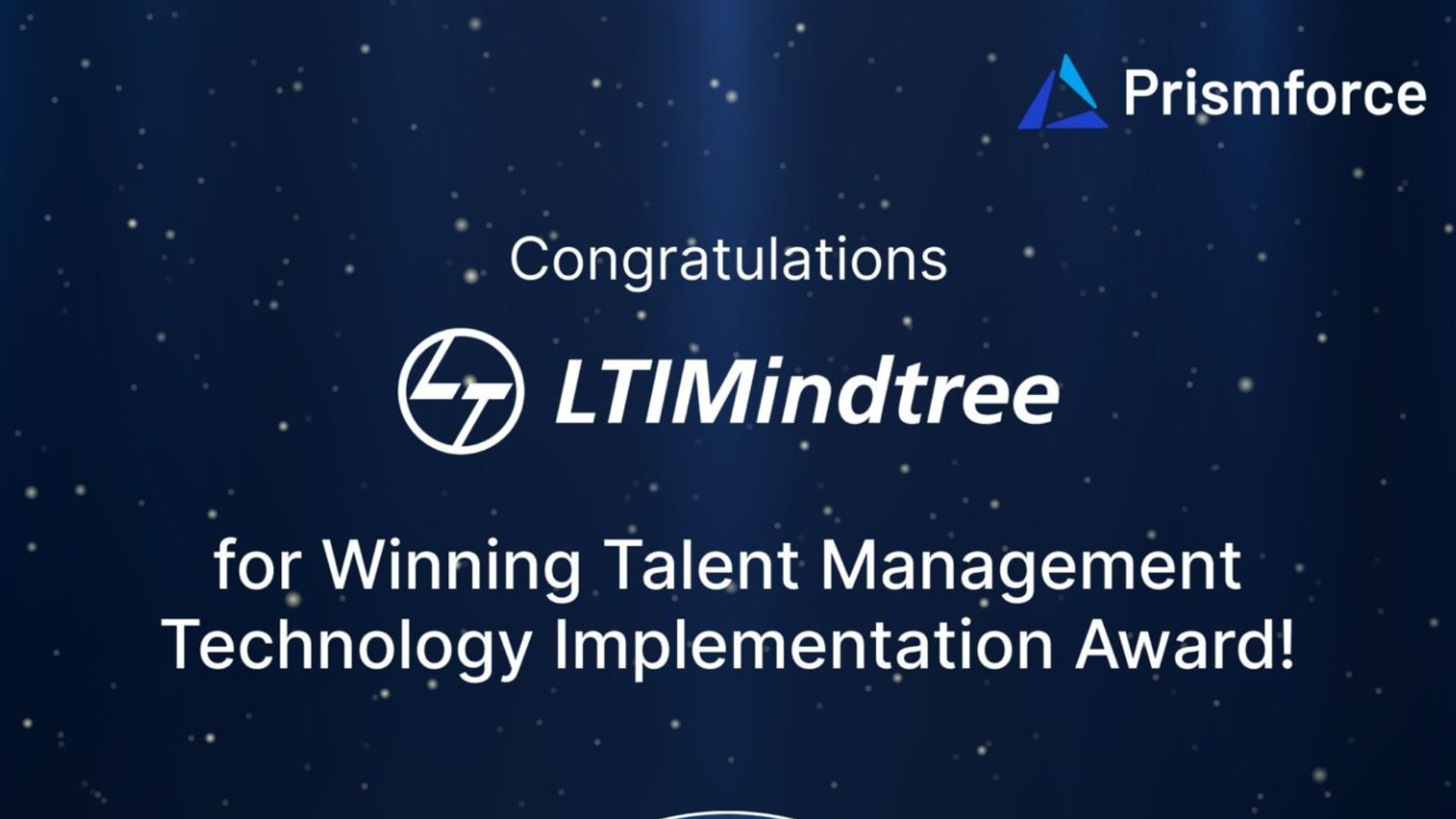
Industry
LTIMindtree Wins Brandon Hall Award with Prismforce SkillPrism: Redefining Skill-Based Talent Transformation at Scale
LTIMindtree has been recognized with the 2025 Brandon Hall Award for Best Talent Management Technology Implementation for its groundbreaking skill-based talent transformation, powered by Prismforce’s SkillPrism platform.
In today’s competitive landscape, skills visibility is critical for business agility, workforce readiness, and employee growth. LTIMindtree embraced this shift by placing skills at the core of its talent strategy—enabling leaders to align capabilities with business priorities while empowering employees to chart their career growth.
Partnering with Prismforce, LTIMindtree leveraged SkillPrism’s robust technology and talent supply chain expertise to scale this vision. A key success factor was embedding SkillPrism directly into the flow of work, ensuring that skill-building was tied to career opportunities, project readiness, and business outcomes. This practical, closed-loop approach drove adoption, engagement, and measurable impact.
The result is a future-ready, skills-powered enterprise marked by greater agility, sustainable growth, and motivated talent. LTIMindtree’s success serves as a blueprint for organizations worldwide on how skills intelligence can drive both workforce transformation and business competitiveness.
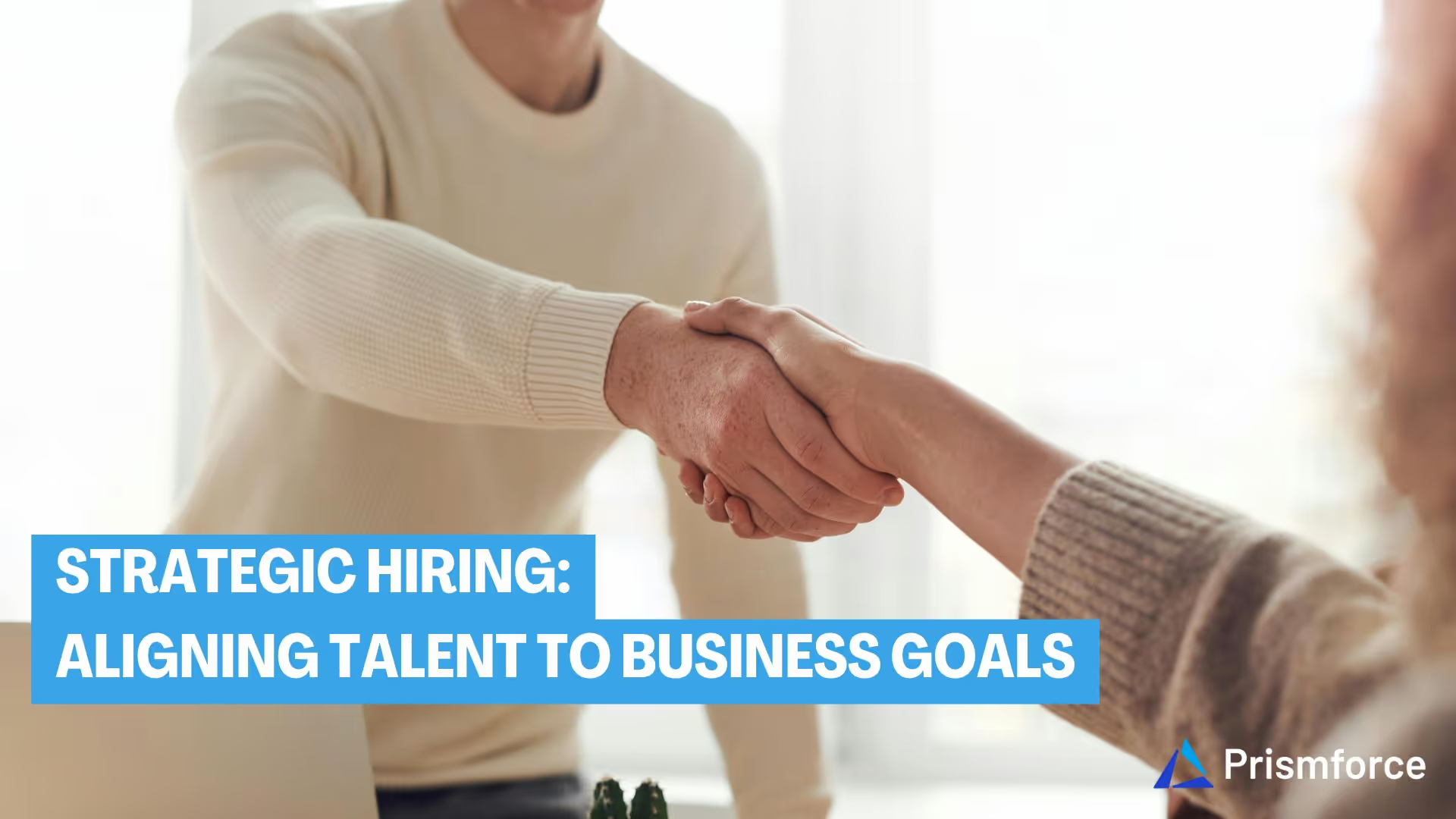
Industry
Strategic Hiring – Aligning Talent with Business Goals for Sustainable Growth
Strategic hiring is the proactive alignment of talent acquisition with long-term business goals, ensuring organizations have the right people, in the right roles, at the right time. Unlike tactical recruitment, which reacts to immediate vacancies, strategic hiring involves long-term workforce planning, building talent pipelines, role-based hiring strategies, and data-driven decision-making. For HR leaders, hiring managers, and executives, strategic hiring delivers measurable benefits — improved workforce alignment, reduced turnover, faster time-to-fill for critical roles, and stronger employer branding. Core elements include forecasting future talent needs, prioritizing high-impact roles, and creating scalable recruitment processes that can adapt to market shifts. Building a strategic hiring plan requires aligning with leadership on goals, identifying critical roles, leveraging analytics, and maintaining proactive talent management. Key metrics such as quality of hire, time-to-fill, and skills gap reduction ensure progress can be measured. With Prismforce, organizations can map skills to future needs, close gaps before they impact delivery, and hire with precision to fuel sustainable growth.
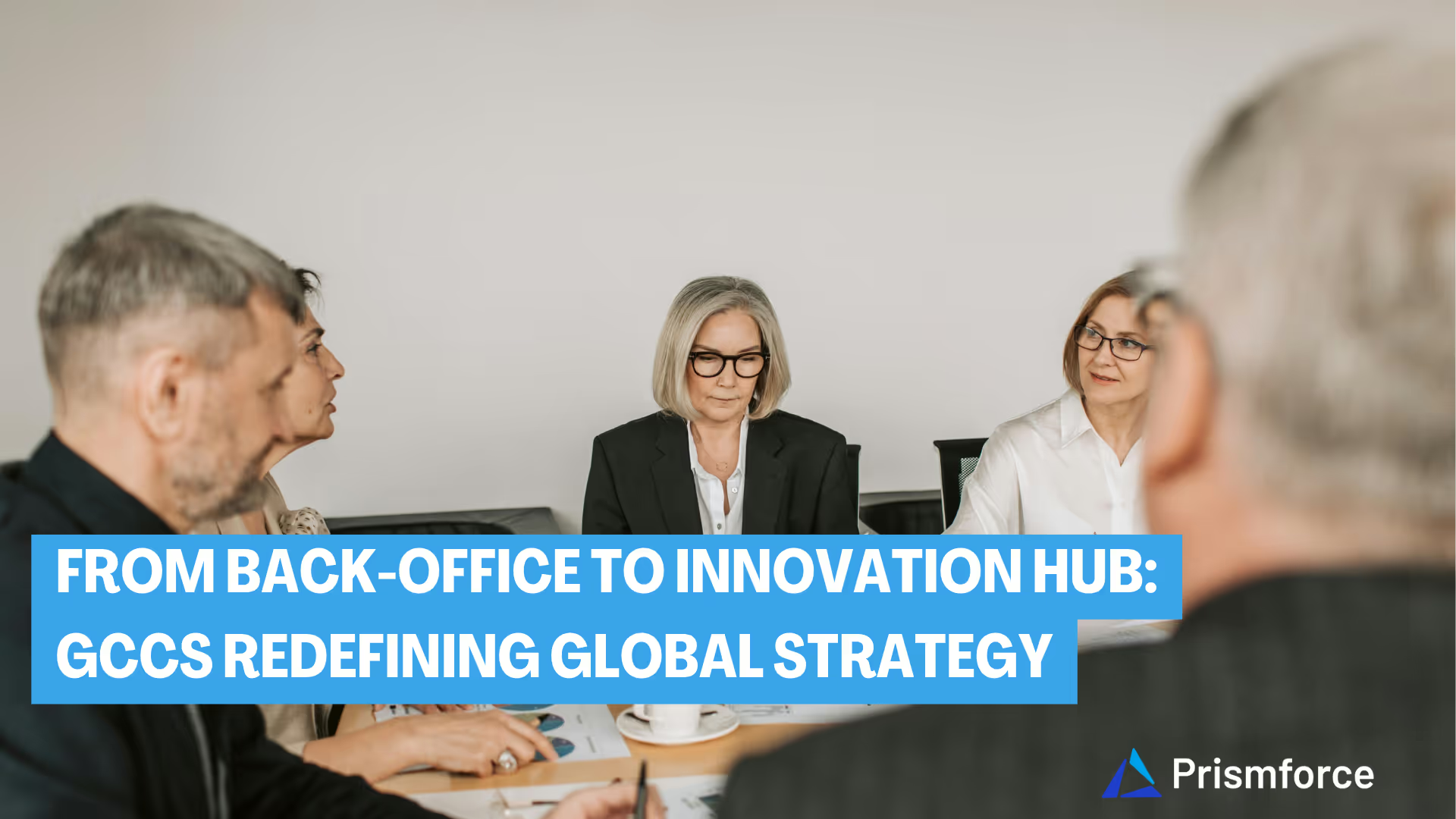
Industry
From Back-Office to Innovation Hub: GCCs Redefining Global Strategy
India's GCCs are evolving from operational units to strategic innovation hubs, focusing on skill visibility, AI-driven talent strategies, and ecosystem collaboration.
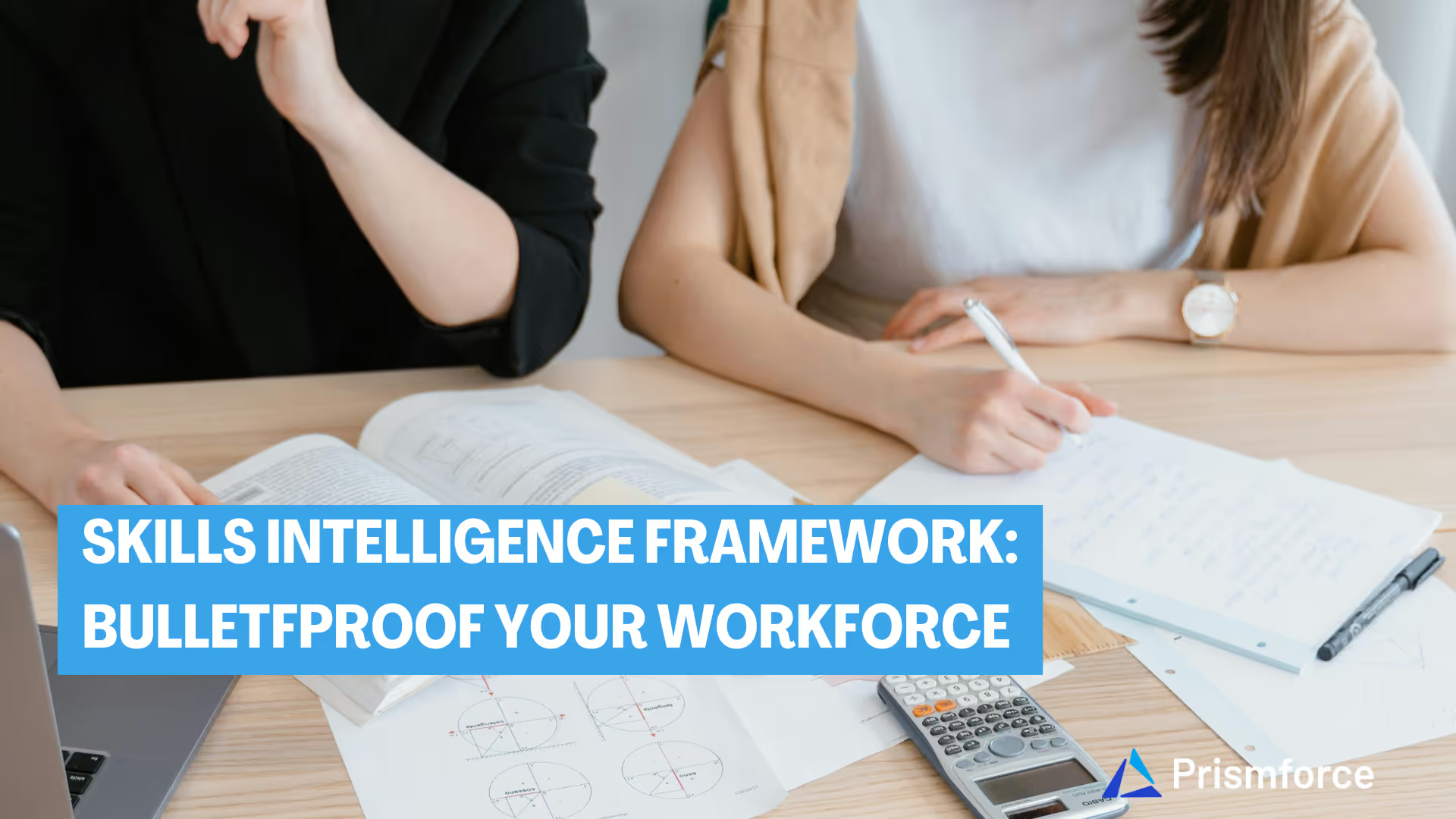
Industry
Skills Intelligence Framework: Bulletproof Your Workforce
The workforce is transforming from static job titles to dynamic skills-based models. By 2030, skill gaps could cost businesses $8.5 trillion in lost revenue, with 75% of leaders already struggling to find necessary talent.
A skills intelligence framework maps employees' capabilities and future needs through four elements: identification, assessment, prediction, and development. Unlike traditional methods, it uses real-time data to create dynamic skill profiles.
By 2025, 58% of employees expect dramatic job requirement changes, and 39% of core workplace skills will be different by 2030. Organizations with structured skills approaches are 79% more likely to provide positive employee experiences.
Creating an effective framework requires: Building a specific, comprehensive skills taxonomy
Developing a skills inventory using multiple data sources
Validating skills through objective assessments
Turning data into actionable intelligence
Integrating skills data across HR processes Common obstacles include resistance to change, incomplete data, and departmental silos.
Success metrics should track both individual growth and organizational impact, with the most powerful proof being business wins directly linked to skills intelligence initiatives.
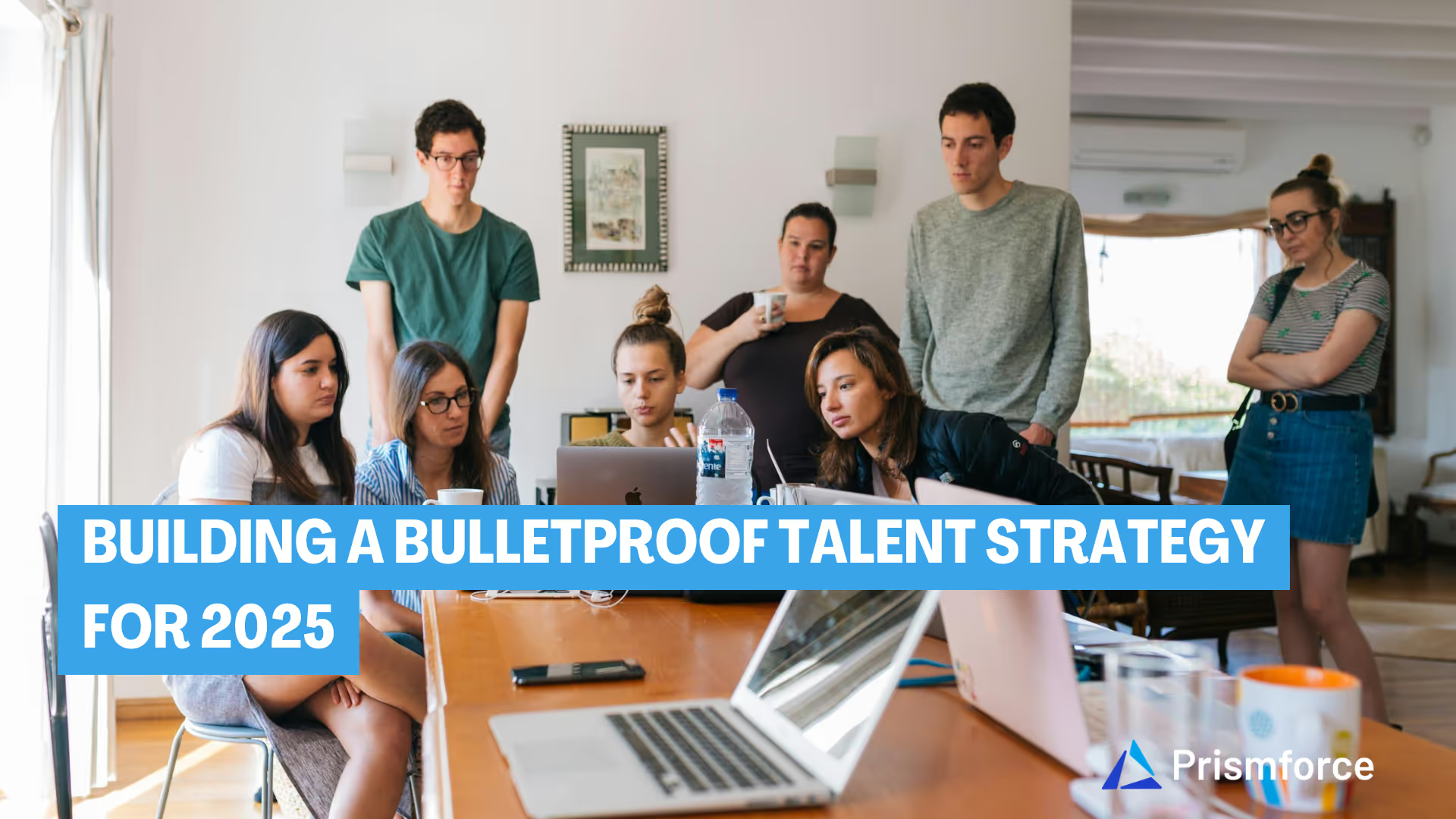
Industry
Building a Bulletproof Talent Strategy
Here's a 170-word summary of the blog post: The tech industry faces an unprecedented talent crisis in 2025, requiring companies to reimagine their approach to talent management beyond simply increasing compensation. Successful organizations are responding to fundamental shifts in the employer-employee relationship by focusing on five essential elements: comprehensive onboarding, personalized career development, continuous feedback, competitive compensation, and aligned growth opportunities. In hybrid work environments, companies must address the human element of remote work through authentic connection and outcome-focused management. Organizations must also adapt to rapidly evolving skill requirements by creating integrated learning ecosystems. Building a resilient workforce requires substantive employee experiences, systematic innovation cultures, and mental health support. Strategic technology implementation should focus on purposeful AI applications and data-driven insights that connect to decision-making processes. Effective talent strategies require clear goals aligned with business objectives, meaningful KPIs that drive action, structured implementation roadmaps, and continuous adaptation mechanisms. As technology and business models face rapid commoditization, organizations that recognize talent strategy as a business imperative gain a sustainable competitive advantage through their people.
.avif)
Industry
HR Tech Innovations in 2025: How AI is Transforming talent supply chain management
The blog post discusses how AI is transforming HR technology and talent supply chain management in 2025. According to the World Economic Forum, AI recruitment in the enterprise sector is projected to grow at 6.17% CAGR between 2023-2030. The post outlines several key developments:
AI-powered platforms are revolutionizing recruitment, with features like intelligent candidate matching, predictive performance modeling, and automated screening. Companies using AI in hiring are 41% more likely to make successful hires, according to Harvard Business Review.
The emergence of "superworkers" - employees augmented by AI technologies - is reshaping workforce planning. Organizations need to adapt their structures and training programs to accommodate these highly productive individuals.
Key challenges include data privacy concerns, algorithmic bias, and the ethical implications of AI in employee monitoring. The post recommends that companies prepare by investing in AI-ready infrastructure, developing internal expertise, and establishing clear ethical guidelines.
The article concludes by highlighting PrismForce's solutions, which reportedly achieve up to 4-5x improvement in skills discovery and 80% talent supply chain automation.
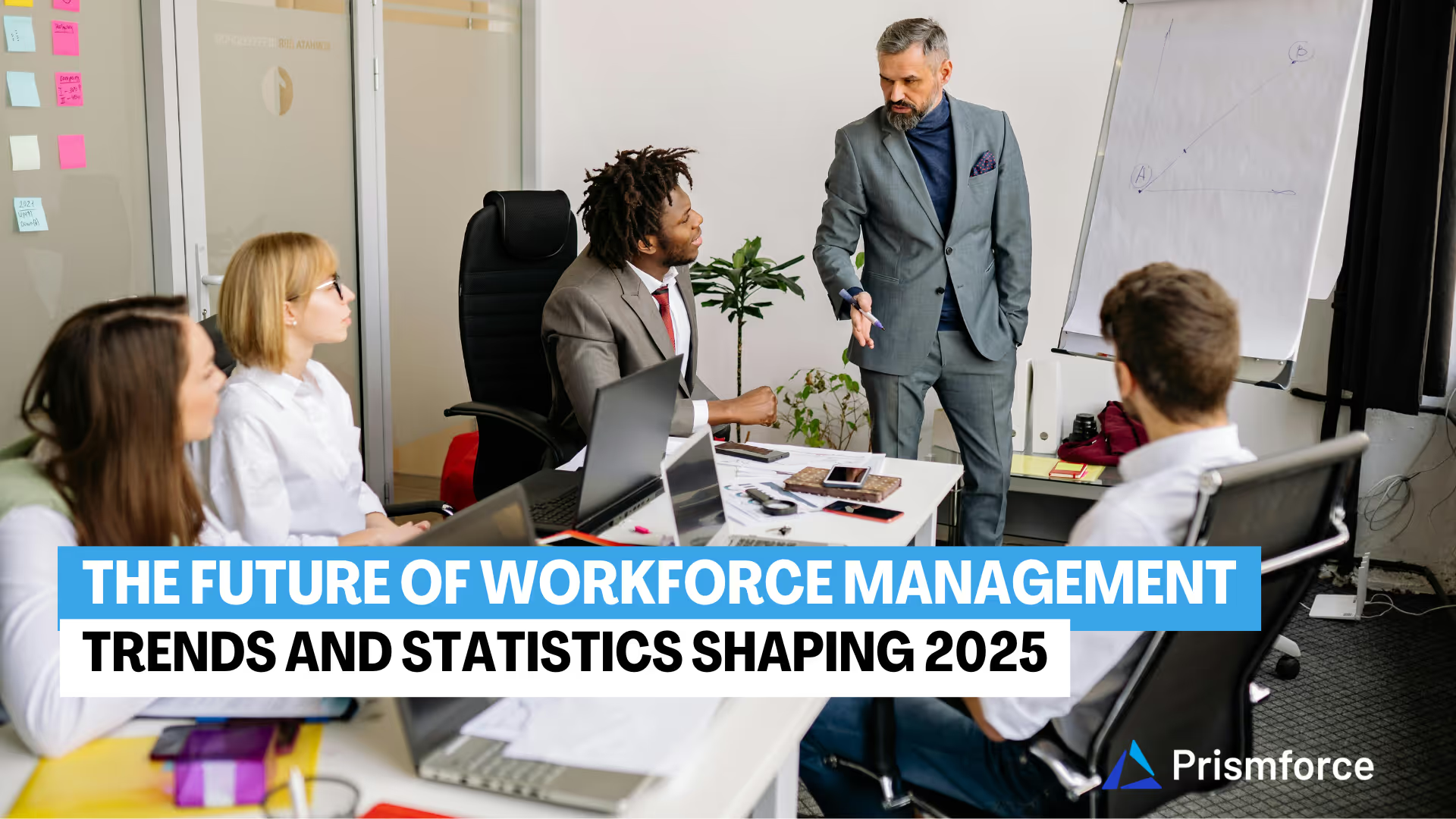
Industry
The Future of Workforce Management: Trends and Statistics Shaping 2025
The workforce landscape is undergoing a transformative shift by 2025, driven by AI, automation, and hybrid work models. With 85% of 2030's jobs yet to be invented, organizations must embrace flexibility, empathy, and purpose in their workforce management strategies.
Key trends include advanced workforce analytics that enable predictive planning and real-time performance tracking. Organizations are leveraging AI-powered talent mapping to identify skill gaps and create targeted development programs. Managing a multi-generational workforce requires adaptive communication technologies and personalized learning approaches.
Global talent ecosystems are becoming crucial, with 89% of employees participating in distributed teams. This demands sophisticated cross-cultural collaboration frameworks and compliance management. Agile talent management is taking center stage, prioritizing skills-based hiring and dynamic team structures over traditional credentials.
Wellness is also emerging as a critical component, with comprehensive mental health support and work-life harmony programs. Organizations implementing these holistic strategies see significant improvements in employee satisfaction, engagement, and retention.
The future of work is about creating environments where people can thrive, connect with purpose, and continuously develop their skills in an ever-changing landscape.
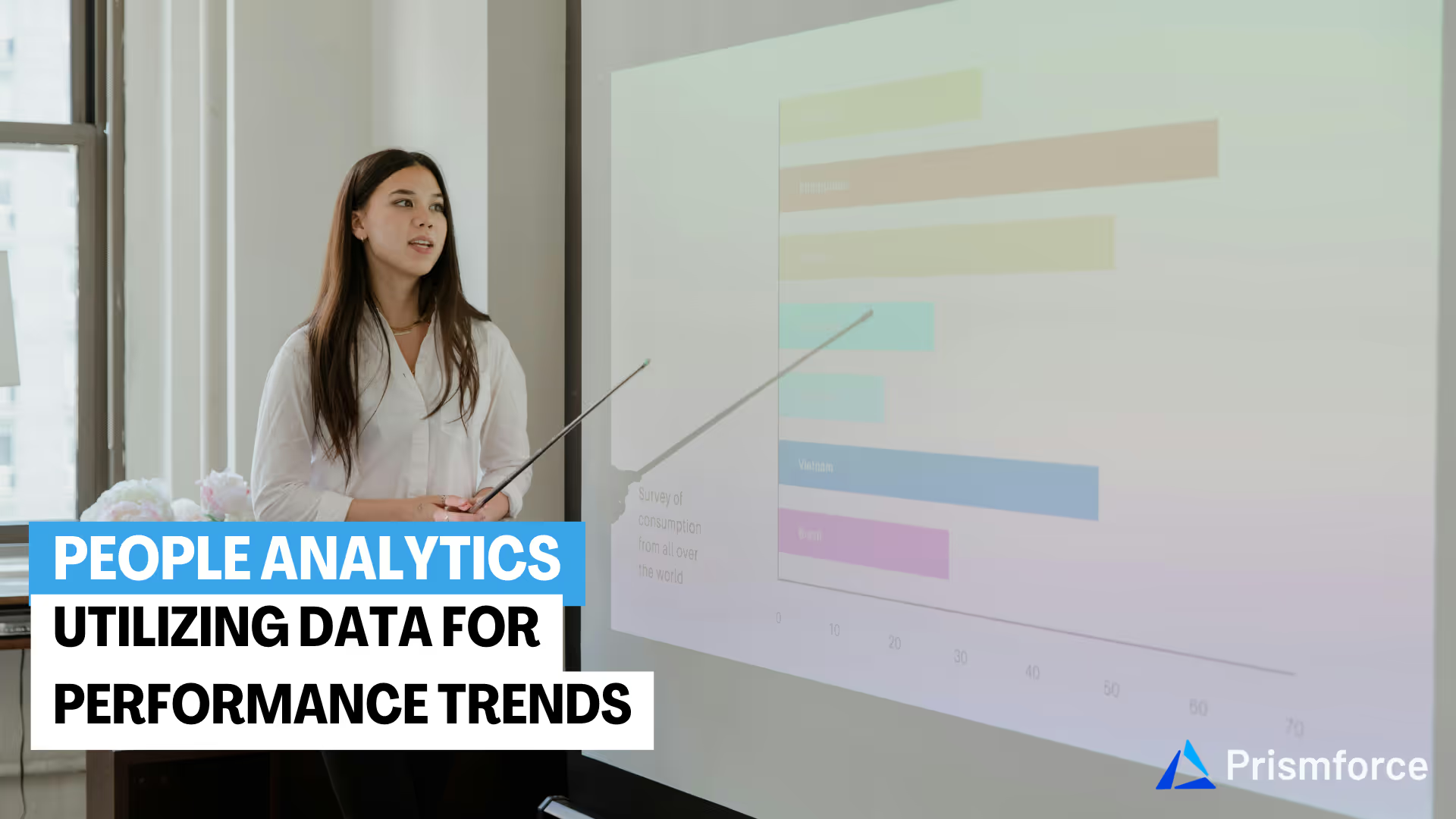
Industry
People Analytics: Utilizing Data to Identify Performance Trends and Areas for Improvement
Explore how people analytics empowers organizations to use data-driven insights to improve workforce performance, identify skill gaps, and enhance strategic decision-making.

Industry
Compliance with Service Level Agreements (SLAs): Meeting Client Expectations With Optimal Staffing
Learn how optimal staffing with AI-driven tools ensures SLA compliance and exceeds client expectations.
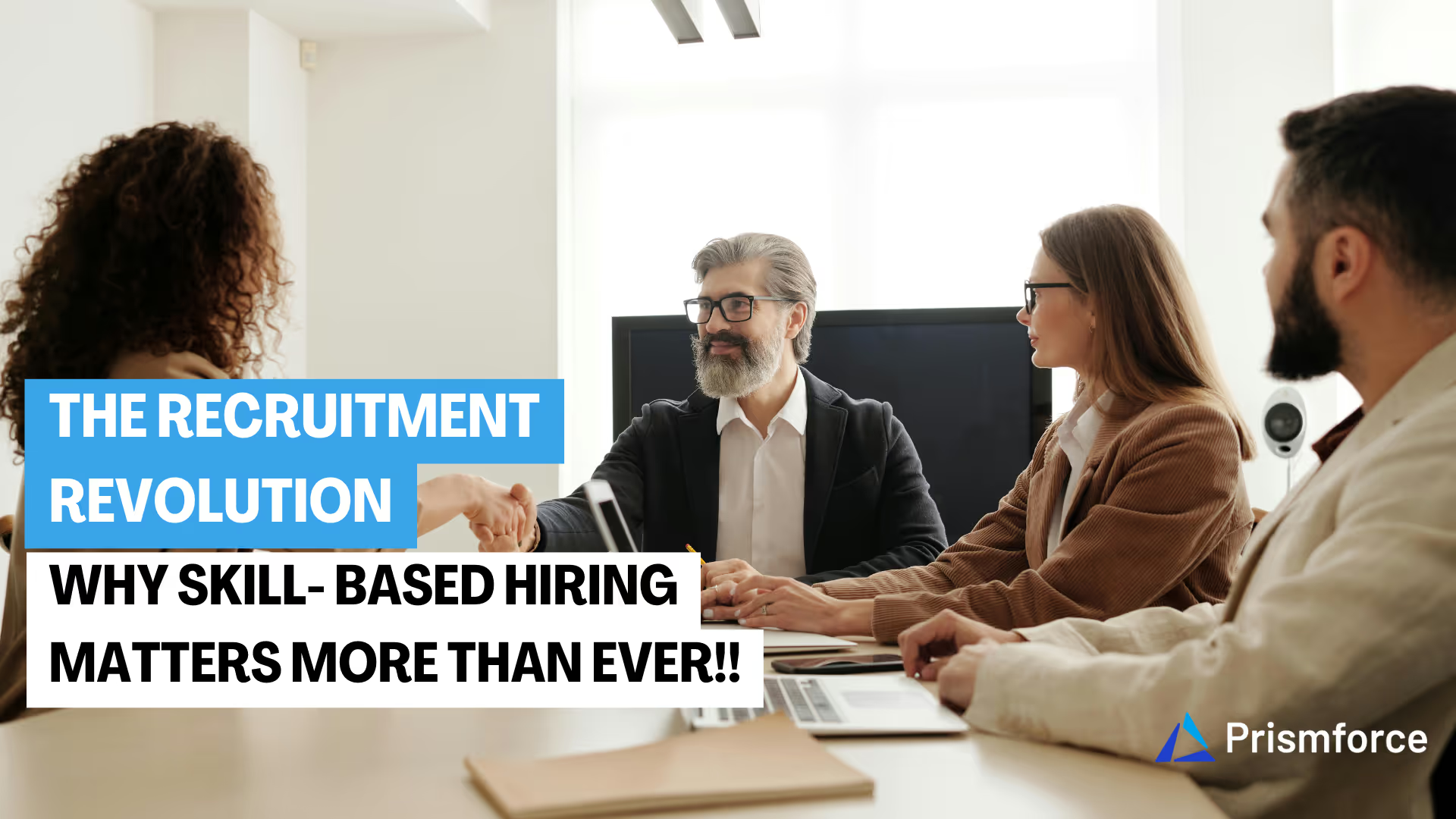
Industry
The Recruitment Revolution: Why Skills-Based Hiring Matters More Than Ever
In the digital age, skills have become the most valuable asset for companies, surpassing traditional metrics like degrees and past experience. The landscape of talent acquisition is evolving rapidly due to AI, automation, and the gig economy. A 2023 McKinsey report reveals that 87% of companies face or expect to face a skills gap, while the World Economic Forum notes the average skill's shelf-life is just five years. Embracing skills-based hiring is essential for companies to expand their talent pool, improve hire quality, and enhance diversity and inclusion. Technology plays a critical role, with AI-powered platforms offering advanced capabilities to assess and match skills, personalize candidate experiences, and streamline hiring processes. Leading companies like IBM, Accenture, PwC, and Amazon have successfully adopted skills-based hiring, demonstrating its effectiveness. However, challenges such as bias in skill assessments and integrating skills data remain. Tools like Prismforce support skills-based hiring by providing dynamic skills inventories and data-driven insights, crucial for building a future-ready workforce.
.avif)
Industry
The AI Skills Revolution: Unlocking Potential For SMEs
Explore how AI-powered skills management can help SMEs overcome resource challenges, enhance workforce planning, and stay competitive
